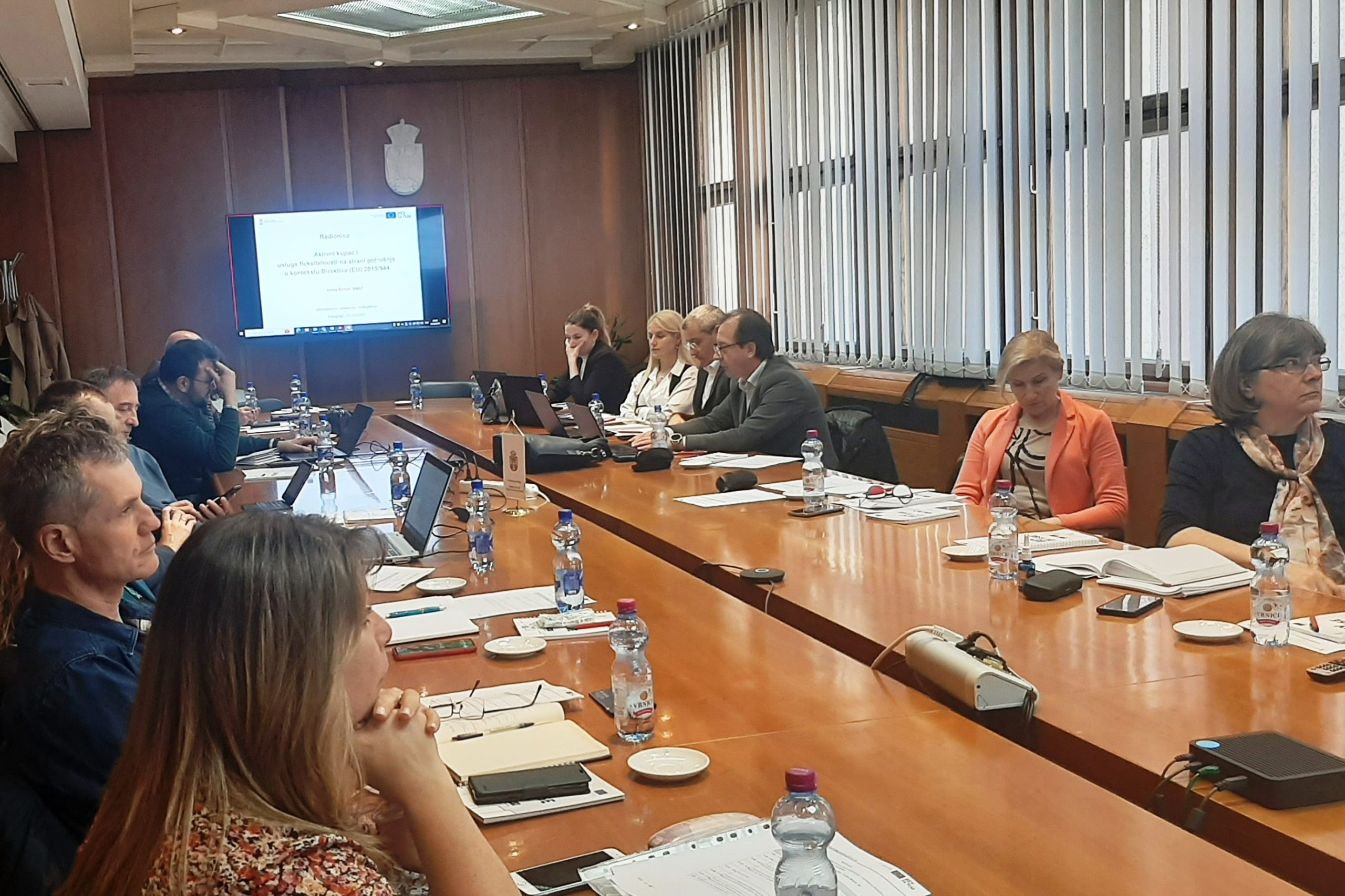Chapter 15: proposal of amendments to the Law on Energy, opening the market for active customers

The proposal of amendments to the Law on Energy, which enables the participation of citizens in the electricity market, was drafted with the support of the PLAC III project.
The project has provided support to the Ministry of Mining and Energy in the area of Negotiating Chapter 15 (Energy), which is part of Cluster 4 that Serbia has opened in December 2021. The Law on Energy and implementing by-laws are aligned with Regulation 714/2009 on conditions for access to the network for cross-border distribution of electricity, while Directive 2009/72/EC on common rules for the internal market in the electricity has been transposed into national legislation.
The current support of the PLAC III project related to the transposition of the new Directive 2019/944 on common rules for the internal market for electricity, adopted in June 2019, within the package of legislative changes called “Clean energy for all Europeans”. The directive establishes common rules for the production, transmission, distribution, energy storage and supply of electricity, together with provisions related to consumer protection. The goal was to create an integrated, competitive, flexible, transparent and consumer-oriented electricity market in the European Union.
The National Programme for the Adoption of the Acquis envisages the adoption of laws, regulations and administrative provisions necessary to ensure compliance with the new directive by 31 December 2023.
Project expert Ivona Štritof presented the results of her joint work with the line Ministry on the transposition of Directive 2019/944 at a workshop held on 18 October 2023 in Belgrade. She stated that during the liberalisation of the electricity market in the EU, in the year of 2007 the market was opened for all customers. The directive must be transposed into national legislation, but the states themselves determine how they will achieve its goals. In the chapter related to the empowerment and protection of consumers, the terms “active customer” and “citizen energy community” were introduced, among others. As the expert stated, at the center of the EU’s vision of the energy union are citizens, that is, consumers/end customers who take responsibility for the energy transition and actively participate in the energy market. Thus, active customers take greater care of their own consumption and participate in the electricity markets by selling excess energy or providing auxiliary services to the system.
Štritof presented the proposal for Amendments to the Law on Energy, which introduced the concepts, rights and obligations of the active customer, the citizen energy community (as a voluntary association for the purpose of energy exchange or joint participation in the market), aggregation (unification of consumption and/or production) and aggregator. When it comes to solutions for energy sharing and distribution of excess energy, she presented the overview of experiences of Austria and Spain, while the experience of Croatia was an example of by-laws in the regulation of the electricity market.
The workshop was attended by representatives of the line Ministry, Energy Agency of the Republic of Serbia, Electric Industry of Serbia, Electric Distribution of Serbia and Electric Grid of Serbia.
Relevant Union acquis:
- Directive 2019/944 on common rules for the internal market for electricity
Recent Posts

Notice
9. April 2024.

The fourth project brochure published
29. March 2024.

The last meeting of the Steering Committee
28. March 2024.
Negotiation chapters
- Chapter 1: Free movement of goods
- Chapter 3: Right of establishment and freedom to provide services
- Chapter 8: Competition policy
- Chapter 9: Financial services
- Chapter 10: Information society and media
- Chapter 11: Agriculture and rural development
- Chapter 12: Food safety, veterinary and phytosanitary policy
- Chapter 13: Fisheries
- Chapter 15: Energy
- Chapter 16: Taxation
- Chapter 27: Environment
- Chapter 28: Consumer and health protection
- Chapter 32: Financial control
- Chapter 33: Financial and budgetary provisions


